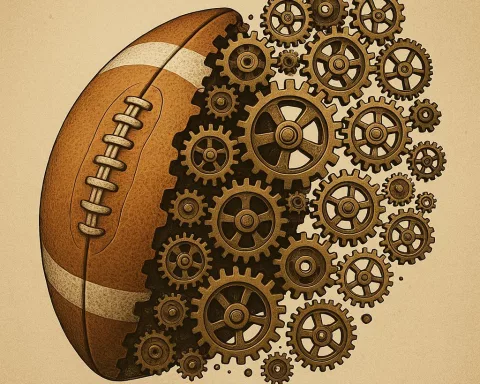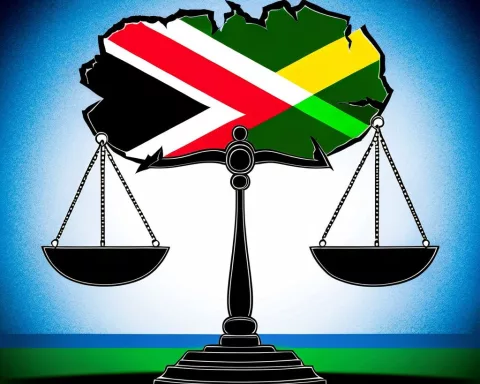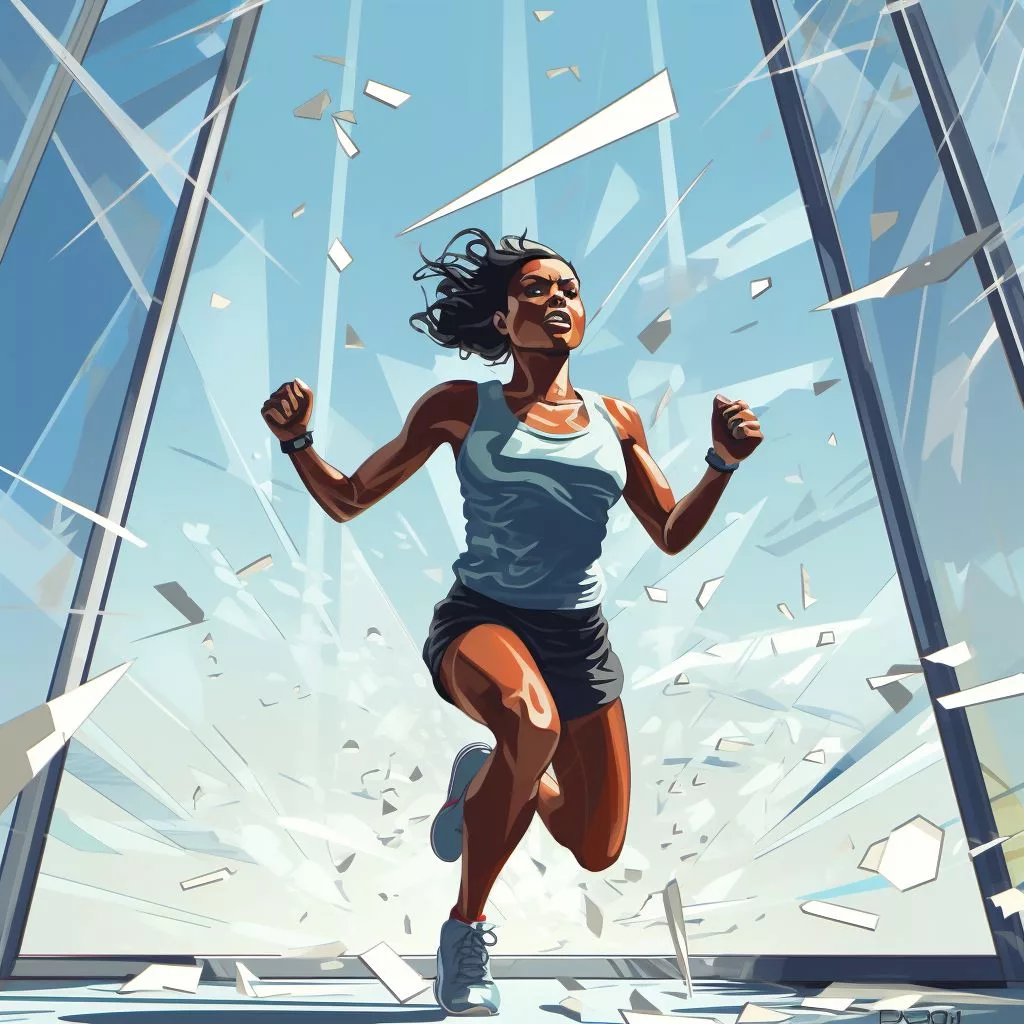Julius Malema, the leader of the Economic Freedom Fighters, opposes the Springboks’ emblem and team colors, which he claims symbolize “white supremacy at the highest level.” Malema seeks to challenge the perception that rugby is a sport solely for white people and aims to reclaim rugby as a sport for all South Africans. His call for a new name, emblem, and team colors that embody the country’s democratic principles rather than “white supremacy” has struck a chord with those who wish to see a more inclusive South African sports scene.
What is Julius Malema’s stance on the South African national rugby team, the Springboks?
Julius Malema, the leader of the Economic Freedom Fighters, opposes the Springboks’ emblem and team colors, which he claims symbolize “white supremacy at the highest level.” Malema advocates for a new name, emblem, and team colors that embody South Africa’s democratic principles, rather than “white supremacy.” He seeks to challenge the perception that rugby is a sport solely for white people and aims to reclaim rugby as a sport for all South Africans. Malema’s challenge to the Springboks represents a call for transformation and unity within South African sports.
Addressing the Springboks’ Controversial Symbolism
Julius Malema, the leader of the Economic Freedom Fighters (EFF), recently made headlines with his strong opposition to the South African national rugby team, the Springboks. Addressing the Gauteng EFF Provincial Ground Forum in Johannesburg, Malema stated that the Springboks symbolize “white supremacy at the highest level” and called for the team’s disbandment.
Malema claims that the emblem and team colors of the Springboks are reminiscent of South Africa’s turbulent apartheid past. He argues that continuing to use these symbols shows a lack of progress and perpetuates the racial divide that has haunted the country for so long. In his own words, “I don’t support Springboks. I don’t support the emblem and the apartheid colors that the National Team wears. We want the colors that represent democracy.”
Despite their recent achievements, such as winning the Rugby World Cup, the Springboks still face criticism, with many South Africans viewing them as a symbol of oppression. Malema’s call for a new name, emblem, and team colors that embody the country’s democratic principles rather than “white supremacy” has struck a chord with those who wish to see a more inclusive South African sports scene.
Reclaiming Rugby as a Diverse and Inclusive Sport
Moreover, Malema seeks to counter the perception that rugby is a sport solely for white people. He points out that rugby has been enjoyed by South Africans of all races for decades, even before it became associated with white dominance. “Our people in the Eastern Cape and everywhere else have played rugby long before these people played it,” he emphasized.
By reminding people of the diverse origins and historical significance of rugby, Malema aims to challenge the prevailing narrative and foster a more inclusive view of South African sports. His speech underscored the need to reclaim rugby as a sport for all South Africans, rather than allowing it to remain a symbol of racial division.
The Springboks vs Bafana Bafana: A Tale of Two Teams
Malema’s fervent call for change extended beyond his criticism of the Springboks’ emblem and colors. He also took issue with the team’s connection to influential white figures like Johann Rupert, whom he called the “Afrikaner President.” Malema cited the Springboks’ recent visit to Rupert’s private farm as evidence of their allegiance to white supremacy and Afrikaner pride.
In contrast, Malema expressed his unwavering support for South Africa’s national soccer team, Bafana Bafana. He views them as a more accurate representation of South African society and stated that, once the EFF comes to power, they will work to revitalize Bafana Bafana and promote them as a unifying force.
Tackling Racial Inequality in South African Sports
Fundamentally, Malema’s challenge to the Springboks underscores the ongoing fight for racial equality and unity in South African sports. While teams like Bafana Bafana suffer from a lack of support and resources, predominantly white teams continue to thrive, highlighting the stark racial divide that persists within the country’s athletic community.
In demanding the dissolution of the Springboks, Malema serves as a poignant reminder of the progress that still needs to be made towards a more inclusive and equitable South African sports culture. The role of sport as both a unifying and divisive force is a crucial issue that must be addressed as the nation strives for reconciliation and progress.
In conclusion, Julius Malema’s challenge to the Springboks represents a call for introspection and transformation within South African sports. By advocating for new symbols, a more inclusive history, and support for teams that genuinely embody the nation’s diversity, Malema aspires to create a fairer and more unified athletic landscape for all South Africans.
1. What is Julius Malema’s stance on the South African national rugby team, the Springboks?
Julius Malema, the leader of the Economic Freedom Fighters, opposes the Springboks’ emblem and team colors, which he claims symbolize “white supremacy at the highest level.” Malema seeks to challenge the perception that rugby is a sport solely for white people and aims to reclaim rugby as a sport for all South Africans. He advocates for a new name, emblem, and team colors that embody South Africa’s democratic principles, rather than “white supremacy.”
2. Why does Malema want the Springboks disbanded?
Malema claims that the Springboks’ emblem and team colors are reminiscent of South Africa’s apartheid past. He argues that continuing to use these symbols shows a lack of progress and perpetuates the racial divide that has haunted the country for so long. Malema’s call for a new name, emblem, and team colors that embody the country’s democratic principles rather than “white supremacy” has struck a chord with those who wish to see a more inclusive South African sports scene.
3. What does Malema want the new Springboks symbol to represent?
Malema seeks to replace the current Springboks emblem and team colors with new symbols that embody South Africa’s democratic principles and diversity. He wants the new symbols to be inclusive, rather than representing “white supremacy.”
4. Why does Malema think rugby is for all South Africans?
Malema reminds people of the diverse origins and historical significance of rugby, pointing out that rugby has been enjoyed by South Africans of all races for decades, even before it became associated with white dominance. He aims to challenge the prevailing narrative and foster a more inclusive view of South African sports.
5. How does Malema view South Africa’s national soccer team, Bafana Bafana?
Malema views Bafana Bafana as a more accurate representation of South African society and expressed his unwavering support for them. Once the EFF comes to power, they will work to revitalize Bafana Bafana and promote them as a unifying force.
6. Why is the issue of racial inequality in South African sports important to Malema?
The ongoing fight for racial equality and unity in South African sports is crucial to Malema. While teams like Bafana Bafana suffer from a lack of support and resources, predominantly white teams continue to thrive, highlighting the stark racial divide that persists within the country’s athletic community.
7. What is Malema’s view of the role of sport in South Africa?
Malema sees sport as having the potential to be both a unifying and divisive force in South Africa. The role of sport as a unifying force is a crucial issue that must be addressed as the nation strives for reconciliation and progress.
8. What is Malema’s ultimate goal for South African sports?
Malema’s ultimate goal is to create a fairer and more unified athletic landscape for all South Africans. By advocating for new symbols, a more inclusive history, and support for teams that genuinely embody the nation’s diversity, Malema seeks to transform South African sports into a more equitable and inclusive environment.












